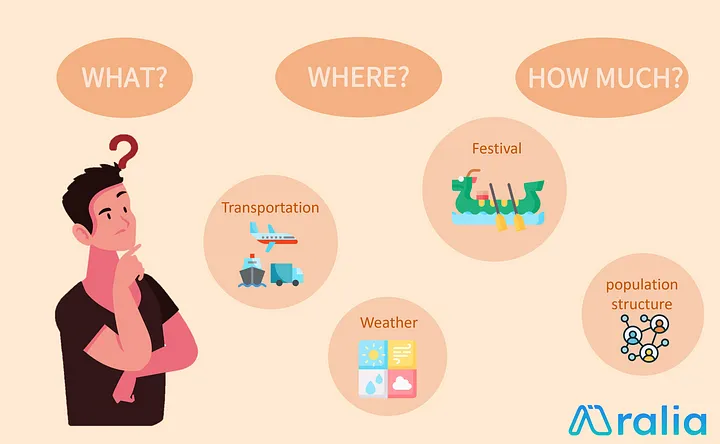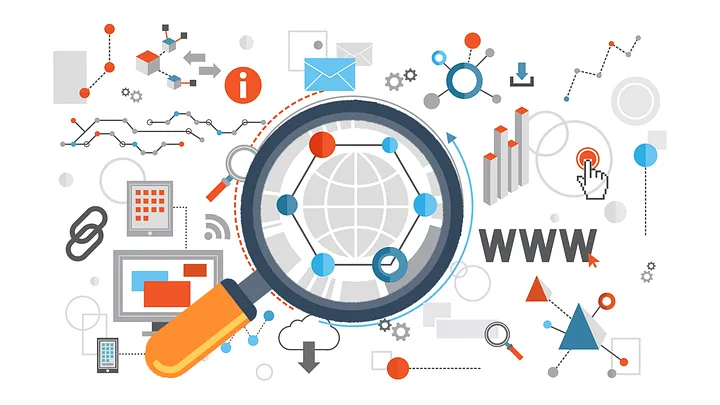The modern data ecosystem faces a paradox: an abundance of data but constrained by closed systems, limiting analysts’ ability to make informed decisions. By building an open data ecosystem that allows secure sharing of diverse data, cross-domain analysis and innovation can be fostered, achieving a balance between data supply and demand. This would unleash the potential of data applications, driving progress and civilization forward.
The Modern Paradox: Unlimited Data, Constrained by Closed Systems
Imagine a scenario: you are an analyst in the marketing department of a food manufacturer. Your role is to analyze constantly changing market factors and influencers, helping distribution units make decisions on what products to deliver, where, and in what quantities. You understand the significance of your role, especially given the rapid changes in urban consumption patterns and the interplay between online and offline platforms. Moreover, the influx of competing products makes your task even more challenging. Relying solely on sales data from your company’s retail channels, updated weekly, is clearly insufficient.
Unfortunately, you face numerous variables—demographics, living environments, weather, earthquakes, traffic, holidays, competitor promotions, and more—that influence results daily. This growing complexity leaves you feeling overwhelmed. Beyond open data, some datasets are only available through paid channels, and regardless of the source, the data must go through cleansing, validation, and integration before use. While your supervisor expects results within days, you’ve already spent over a week on data preparation, with no end in sight for analysis and reporting.

Image Source: Freepik, Modified by Aralia, May 2024
Despite your expertise, the current data ecosystem prevents you from accessing and integrating the diverse datasets you need, even though many of these datasets are routinely recorded by governments, companies, and academic institutions. With limited manpower, time, and resources, you’re forced to abandon the possibility of deep cross-analysis and instead rely on a limited internal dataset and a handful of external sources. But this doesn’t have to be the outcome.
Crossing Organizational Boundaries: Synergy from the Collision of Diverse Data
Thanks to Moore’s Law, ever-evolving process technologies have revolutionized the world we live in. For example, wearable devices constantly detect and record personal health data, and smart grids monitor and adjust power usage, improving energy efficiency. Behind these conveniences are countless interconnected devices and sensors, generating diverse (Diverse), continuous (Live), and ubiquitous (Ubiquitous) data. In this fast-paced environment, the question is no longer “How to collect data?” but “How to quickly find useful data?” The solution lies in whether data owners are willing to efficiently share their resources. However, under current data storage conditions, even though data is abundant, strict access protocols prevent seamless data sharing.

Data, as an intangible intellectual asset, differs from patents or trademarks because it is fundamentally a recorded fact. Anyone can record an event or behavior, but over time, it becomes difficult to determine who originally collected that data. This ambiguity leads to unclear data ownership, causing data owners to protect their assets and hesitate to share. As a result, a paradox arises: today’s data is diverse, continuous, and ubiquitous, yet trapped on countless isolated data islands.
Academic institutions, businesses, and government agencies all possess vast, multifaceted datasets on human behavior and the environment, but they remain isolated, lacking the synergy that comes from data sharing. This isolation limits the full potential of data. Just as cultural collisions generate societal evolution, the interaction of diverse data—what we call “data collisions”—can unlock previously hidden insights and spark innovation. With an open data environment that enables cross-domain analysis, we could uncover deeper causal relationships, make better decisions, and even develop entirely new judgments beyond our imagination.
The New Era of Open Data: Achieving Balance in the Data Ecosystem
Data islands limit the potential applications of data—a regrettable situation, but one that can be overcome. Throughout history, humanity has experienced four major data revolutions. In ancient times, people recorded life details on bones and shells, then moved on to paper and print, which facilitated more efficient information exchange. The advent of computers brought transactional data, focused on specific applications. Today, we are in the era of factual data, where IoT and sensors continuously generate and record data. This data could flow like rivers into the sea, creating new synergies and opportunities. However, users’ thinking remains stuck in previous stages, resulting in isolated data islands.
The revolution, though not yet fully underway, is inevitable. The question is: can we transform these isolated data islands into an ecosystem where diverse data interacts? It is time for a paradigm shift in human thinking and behavior, driven by technology. By encapsulating data rather than using traditional file formats, we can ensure secure sharing and transmission of information and insights. This approach replaces the need for raw data access in order to conduct analysis, safeguarding data ownership and encouraging data owners to share more freely. As supply increases, data users can efficiently access diverse, continuous, and ubiquitous data.
When such an open data ecosystem is established, with security and privacy mechanisms in place, data supply and demand can achieve a natural balance, much like an ecosystem. Data will evolve from isolated islands to vibrant “data planets,” enabling humanity to reach the next milestone in its civilization.
If you’re passionate about data, follow us on social media and join us in the fun of exploring data!
IG: https://www.instagram.com/araliadata/
FB: https://www.facebook.com/Araliadata
-01-2.png)
0 Comments